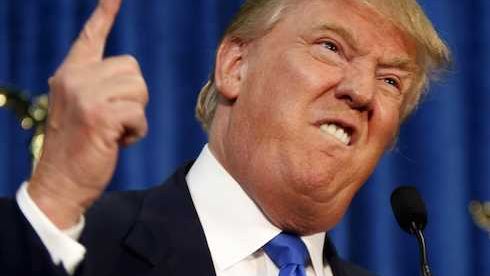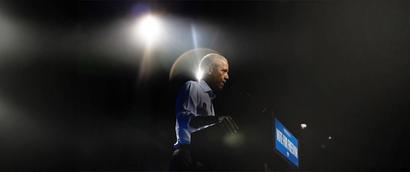

The joke’s over. It’s time to wake up to the threat of Trump
- Words: Gentleman's Journal
It is 2017. Donald Trump is President of the United States, the leader of the free world, and the commander-in-chief of the planet’’s most powerful military.
Muslims are still waiting for President Trump to lift border restrictions, universal healthcare for all has been cancelled, there is a 12-foot high wall along the Mexican border, and millions of illegal immigrants have been sent back to their countries of origin. The White House lawn has become a Par-3 golf hole.
Such a dystopian idea has provoked a chorus of laughter, mock and sarcasm among vast swathes of the liberal Western media and European public. But while Mr Trump and his defining toupee may have pulled off the not insignificant feat of usurping Kanye West as the most ludicrous public figure in the United States, beneath the comedy, the political trend that he both leads and represents is serious, and should be dealt with as such.
Trump has, among other things, called for an entry ban on Muslims, surveillance of all mosques, and a wall to be built on the Mexican border, called climate change ‘a hoax’ and ‘just weather’, and said dictators Saddam Hussein and Muammar Gaddafi did a better job at combatting terrorism than the US.
The liberal establishment’s reaction has been predictable. Trump has been depicted on newspaper front pages appearing to give a Nazi salute; cheap puns on the furore and past ‘Fuhrers’ leave little to the imagination.
Petitions in the UK have sought to ban him from entering the country, universities have stripped him of honorary degrees and comedians are having a field day: Bill Maher was the first of many to suggest that the only possible explanation for Trump’s grotesquely offensive campaign is that he is a Manchurian candidate, deployed by the likely Democratic candidate Hillary Clinton to torpedo the Republican Party’s chances in November.
So far, so funny. But elections are not won in the cartoon departments of newspapers or the audience lists of late-night comedy shows. Trump is still winning the race to represent the Grand Old Party in the world’s most important ballot. And some polls suggest that as many as a quarter of the British and US public support his idea of an entry ban on Muslims.
That last fact is why Clinton isn’t laughing any more. ‘I no longer think he is funny,’ said the Democratic favourite. ‘What he is saying now is not only shameful and wrong, it is dangerous.’ And she is right.
More importantly, as we laugh at him trying to get on a ballot paper, Trump-like politicians across Europe are actually winning elections.
In France, Marine Le Pen’s Front National, which wants to close the borders of Europe to migrants, pull the country out of the eurozone and praises Russian President Vladimir Putin as a ‘defender of Western Civilisation’, holds more than a third of France’s seats in the European Parliament and has won 28 per cent of the first-round vote in this month’s French regional elections. But while Le Pen has distanced herself from Trump’s more radical policies, stating that she stands for all the people of France, whatever their religion, her campaign has almost exclusively sought to use people’s fear of immigration to promote her nationalist agenda.
In the Czech Republic, President Milos Zeman has spoken at rallies organised by the Bloc Against Islam, a movement which seeks to evict all Muslims from the country, while the tub-thumping, anti-immigrant rhetoric of Hungarian Prime Minister Viktor Orban emulates much of Trump’s style and approach, despite employing a more reserved style of populism. Nigel Farage’s United Kingdom Independence Party failed to win more than one seat at the last General Election, but more than two decades of his populist, anti-immigration measures could well see the country leave the European Union at the upcoming referendum.
Trump, of course, is not guaranteed to even win the Republican nomination. In the past, controversial candidates with radical ideas have fallen from leading positions.
Pizza company chief executive Herman Cain soared to the top of the Republican polls for a few months in late 2011. His plan to reform the economy by making all major taxes 9 per cent saw him briefly overtake President Barack Obama in the popularity ratings, but his campaign came crashing down after a string of sexual misconduct allegations.
But while Cain was incompetent, Trump is tactical. And, lest we forget, a billionaire with the cash to fuel a sustained campaign. His xenophobic proposals will almost certainly continue to gain traction on the fringes of mainstream politics.
In some senses, it is irrelevant whether Trump wins the nomination: the impact on the political discourse has already been made and his brand of xenophobic populism will outlive his campaign. Centrist opponents must stop underestimating him and his fellow populists, further alienating the disgruntled voters that have flocked to their cause with a high-handed and mocking approach to their agenda.
Trump may find he cannot laugh his way to the White House. But either way the joke could end up on us all.
By Henry Foy, the Financial Times’ Central Europe Correspondent
Main photo: Reuters


